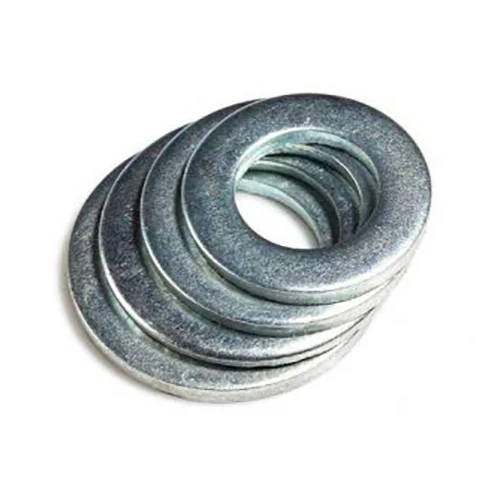Flat Washer: A Simple Yet Essential Component in Mechanical Assemblies
2025-05-29
A flat washer is one of the most basic yet indispensable components used in mechanical and structural assemblies. Though small and seemingly simple, flat washers serve critical functions in distributing loads, preventing damage, and enhancing the longevity of bolted connections across a wide range of industries.

What Is a Flat Washer?
A flat washer is a thin, flat, circular disc with a central hole designed to fit around a bolt or screw shaft. Typically made from metal such as steel, stainless steel, brass, or aluminum, flat washers come in various sizes and thicknesses to accommodate different fasteners and application needs.
Primary Functions of Flat Washers
1. Load Distribution
When a bolt or screw is tightened, the flat washer helps spread the load evenly over a larger surface area. This prevents the fastener head from digging into or damaging the material beneath.
2. Surface Protection
Flat washers protect the surface of assembled parts from scratches, dents, or deformation caused by the fastener head during installation.
3. Preventing Loosening
By providing a smooth, even surface for the fastener, flat washers help reduce the risk of loosening due to vibrations or movement.
4. Sealing and Spacing
In some applications, flat washers serve as spacers or help seal joints to prevent leakage of fluids or air.
Types of Flat Washers
Standard Flat Washers
The most common type used for general purposes, providing basic load distribution.
Heavy-Duty Flat Washers
Thicker and wider than standard washers, these are used for heavy loads or soft materials.
Specialty Flat Washers
Made from materials like rubber, nylon, or plastic for insulation, corrosion resistance, or sealing functions.
Applications of Flat Washers
Construction and Structural Engineering
Used extensively in buildings, bridges, and infrastructure projects to ensure secure bolted joints.
Automotive Industry
Found in engines, chassis, and other vehicle components where vibration resistance and load distribution are crucial.
Machinery and Equipment
Protect machinery parts and maintain fastener integrity under dynamic loads.
Electronics
Insulating flat washers are used to protect delicate circuits and components.
Choosing the Right Flat Washer
Selecting the appropriate flat washer depends on factors such as:
Material compatibility with the fastener and workpiece
Load requirements and environmental conditions (corrosion, temperature)
Size and thickness matching the bolt or screw diameter
Special needs like electrical insulation or sealing
Conclusion
Despite its simplicity, the flat washer plays a vital role in ensuring the reliability and durability of mechanical connections. By evenly distributing load, protecting surfaces, and preventing loosening, flat washers contribute significantly to the safety and performance of countless applications. Whether in heavy industry or everyday household fixes, choosing the right flat washer is essential for successful assembly and long-term stability.


